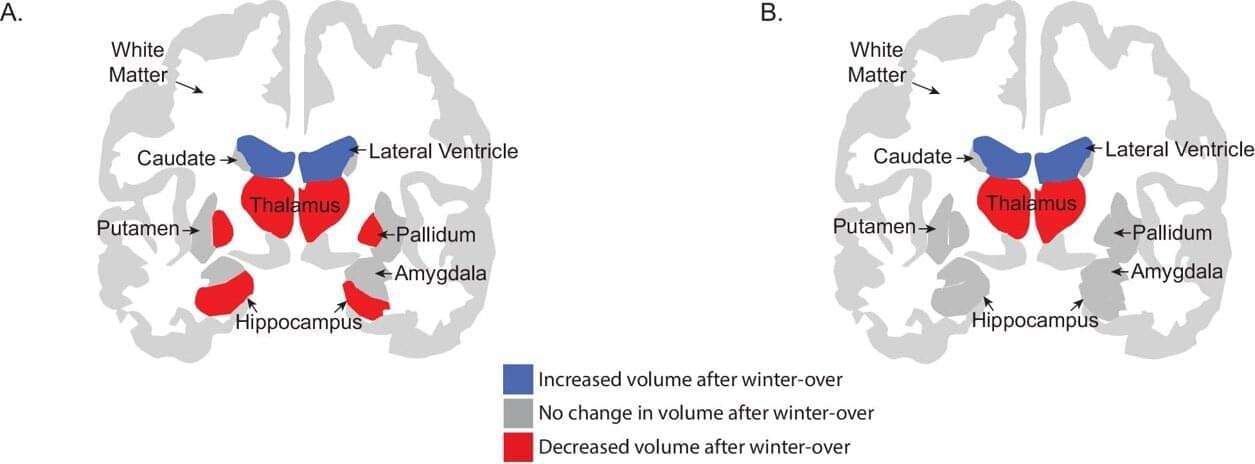Brain researchers at the University of Pennsylvania have detailed temporary reductions in gray matter following prolonged isolation in Antarctica. Structural losses were most apparent in regions governing memory and spatial processing. Longer sleep durations and higher sleep efficiency corresponded with smaller changes in brain volume.
Findings may have implications for how astronauts’ brains adapt under the psychological and environmental pressures of deep space missions, where prolonged isolation, limited movement, and disrupted sleep are inherent to the experience.
Chronic stress alters the brain. Not through a single trauma, but through sustained environmental pressures of extreme temperatures, social confinement, monotony, hypoxia, and irregular sleep. Such conditions converge in spaceflight, where astronauts endure prolonged exposure to isolated, confined, and extreme (ICE) environments.
